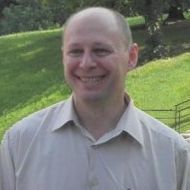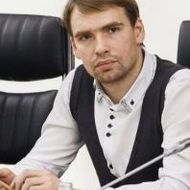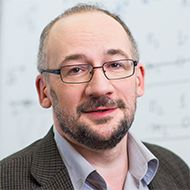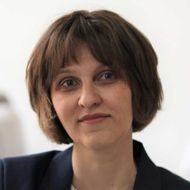The school is co-organized by the School of Computer Science, Physics and Technology and the Laboratory of Social & Cognitive Informatics (SCILa), School of Social Sciences of HSE university (St.Petersburg campus). ISSCAI will be the first event in a series.
Mission
The mission of ISSCAI is to get its students acquainted with the latest developments in the field of artificial intelligence and to create an environment for establishing informal communication and successful research and business collaboration between scientists, students and industry professionals. The target audience of the school is advanced graduate and PhD students, academic and industrial researchers, and developers. ISSCAI expects to attract 50-70 participants each of whom will be selected based on their resume and 2 page paper and will have to present their work in a poster session. Detailed information can be found in the call for papers. Suggested paper structure can be found here.
Participants support
Participation in ISSCAI is free of charge. A limited number of grants partially covering travel for motivated and qualified Russian students will be available on a competitive basis. Likewise, up to 20 near-free places in the HSE dorm will be distributed among the strongest applicants.
Courses
Technologies of Trust
In this course you will learn about the most popular architecture for processing artificial language - Transformer, as well as about large language models based on it, their generalizing and generative abilities. We will also look at practical cases of using this architecture to solve relevant real-world tasks, and talk about fine-tuning, promt-engineering and RAG.
Indian Institute of Technology Delhi. Professor in the Department of Computer Science and Engineering, Indian Institute of Technology, Delhi. Affiliated Professor in the Department of Computer Science and Engineering, University of Washington. Mausam was awarded the AAAI Fellow status in 2024 for his sustained contributions to the field of artificial intelligence and unusual distinction in the profession.
In this course we will delve deep into advanced NLP topics such as aligning of language models (LMs) with human preferences, retrieval augmented generation (RAG), reasoning with LMs and prompting. Last lecture will be devoted to relevant research problems and pratical advice on exploring large language models.
Senior Researcher, Sberbank. Ivan Karpukhin developed speech technologies for Yandex.Alice and computer vision models for VK. He is the author of patents on voice biometrics. For the last several years he has been actively publishing scientific articles on neural networks and optimization methods. Now he investigates new approaches to time series modeling in Sberbank's AI laboratory.
In this course we will cover the basics of deep computer vision. The goal of the course is to develop practical skills in solving typical computer vision problems. In the last lecture, we will briefly discuss transformer architecture for computer vision and multimodal approaches. Basic knowledge of PyTorch or other deep learning libraries for all participants is assumed.
PhD in mathematics. Senior researcher, Speech technology center. Maxim Korenevsky is the author of more than 50 scientific papers and has been working in speech technologies for more than 20 years, his research interests, also, include statistical modeling, Monte Carlo methods, deep learning and digital signal processing.
The course is devoted to a brief introduction to modern automatic speech recognition technologies. Students will become familiar with the tasks of speech recognition, the history of the development of speech recognition systems, and receive an overview of modern technologies and tools for creating recognition systems.
PhD in computer science. Associate Professor, Zayed University, Abu Dhabi. Baris Bozkurt has authored over one hundred scientific papers, his main research interests include speech and music signal processing, and computational musicology.
In this course we will talk about music information retrieval in machine learning. We will explore different ways to represent music and analyze the music signal using classical machine learning and deep learning methods. We will, also, look at applications such as genre detection, cover detection, tuning musical instruments, finding musical patterns, and automatic assessment of rhythmic pattern repetition and melody repetition performance.
Guest lectures
Doctor of Mathematics. Head of AI at Synthesis AI & Associate professor in the Department of Mathematics and Computer Science, Saint-Petersburg State University. Sergey Nikolenko is the author of more than 100 scientific papers, his main area of interest is machine learning and network algorithms, and his previous research includes work on cryptography, theoretical computer science and algebra
Now many researchers believe that the creation of truly strong artificial intelligence (artificial general intelligence, AGI) is just around the corner. In this regard, let's discuss: what are the modern artificial intelligence models that fill the news, when will AGI appear, how will we know about it and, most importantly, are we ready for it?
PhD in economics. Head of the Department of Advanced Machine Learning Algorithms, Data Analysis and Modeling Department, VTB Bank
Doctor of Mathematics. Head of the Department of Mathematical Methods of Forecasting, Moscow State University
A vast and growing wealth of knowledge is scattered all over the world today. This knowledge would probably be sufficient to solve all the enormous difficulties of our days, but it is scattered and disorganized. We need a purification of thought in a kind of workshop where knowledge and ideas can be received, sorted, summarized, assimilated, clarified, and compared." - wrote science fiction writer Herbert Wells in 1940. Despite the internet, search engines and digital libraries, the problem remains largely open. Only now, with the advent of large language models, are technological possibilities emerging to break down the barriers between humans and knowledge and create a collective human-machine intelligence.

VK, Tech lead of E-commerce team
In this lecture we will talk about how novice S/ML specialists organize their work. We will touch upon the problem statement, working with business requirements, data collection and data processing, which has a critical impact on the final result. We will consider how to choose data for validation of results and go through all stages of research: experiments, reproducibility of results, organization of work through pipelines, checkpoints, approaches to output of a model from just a checkpoint to a production service. At the end of the lecture we will also mention service support: monitoring, partial assesment, pre-training and a/b tests.
Programme Committee
Doctor of Computer Science. Principal Investigator at Social and Cognitive Informatics lab & Associate Professor at St. Petersburg School of Physics, Mathematics, and Computer Science, HSE, St. Petersburg
PhD in Physics. Associate Professor of Department of Informatics
Doctor of Mathematics. Head of AI at Synthesis AI & Associate professor in the Department of Mathematics and Computer Science, Saint-Petersburg State University
PhD in computer science. Head of HSE-Sberbank Department ‘Financial Technologies and Data Analysis’ & Head of AI Research Centre, HSE
Doctor of Computer Science. Head of School of Data Analysis and Artificial Intelligence, HSE
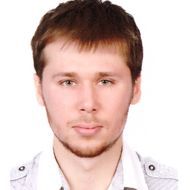
St. Petersburg School of Physics, Mathematics, and Computer Science, Department of informatics, HSE, St. Petersburg
PhD in Economics. Head of the Department of Advanced Machine Learning Algorithms, Data Analysis and Modeling Department, VTB Bank.
Doctor of Mathematics. Head of the Department of Mathematical Methods of Forecasting, Moscow State University
PhD in Sociology. Head of Social and Cognitive Informatics lab, HSE, St. Petersburg
PhD in Mathematics. Head of laboratory for Models and Methods of Computational Pragmatics, HSE
Organising Сommittee
Doctor of Computer Science. Principal investigator at Social and Cognitive Informatics lab & Associate Professor at St. Petersburg School of Physics, Mathematics, and Computer Science, HSE, St. Petersburg
Social and Cognitive Informatics lab, HSE, St. Petersburg
PhD in Sociology. Head of Social and Cognitive Informatics lab, HSE, St. Petersburg

Проектный центр компании «1С»: Заместитель декана факультета Санкт-Петербургская школа физико-математических и компьютерных наук по организационной работе
PhD in Physico-mathematical Sciences. Head of St. Petersburg School of Physics, Mathematics, and Computer Science, HSE, St. Petersburg
PhD in Phylology. Deputy head of Social and Cognitive Informatics lab, HSE, St. Petersburg











